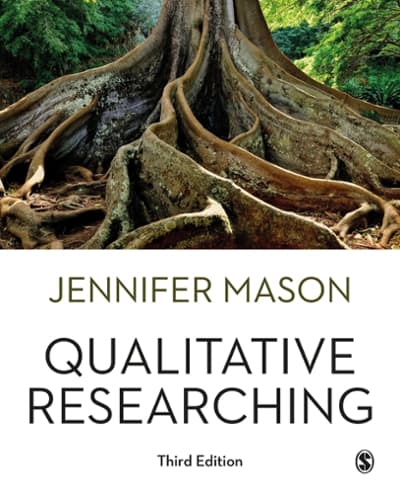Question
response to discussion below. must have in text citations. Examining our reading this week has already caused me to reconsider the perspectives for diagnosis I
response to discussion below. must have in text citations.
Examining our reading this week has already caused me to reconsider the perspectives for diagnosis I have taken in the past. My background is heavily inundated with behavioral models of thinking. Working with ABA methods to help curb and modify maladaptive behaviors has taught me many lessons. In these lessons, I have learned that, while modification has its place, the home/family dynamic has a significant influence on how individuals process and receive information and then process externalization of this information. In my experience working with individuals diagnosed with IDD and ASD, I have also learned that even with cognitive delay-family dynamics, routines, etc continue to affect the overall mental health of an individual. When people with these diagnoses have parents/caregivers who are invested and understand the value of structures, social, spiritual, etc., then the individual tends to display less maladaptive behaviors than those with parents on the other side of the "coin."
I truly believe after my years of experience, that Family Models provide incite in particular children (who then develop into adults) and the way that they handle psychiatric conditions, (Parritz & Troy, 2018). We can look throughout scripture, specifically to Proverbs 22:6 "Train up a child in the way they should go, and when he is old, he will not depart from it," (Nelson, 2016). This highly referenced verse reminds us as professionals/ therapists of the importance of the family unit in the life of a child. Family dynamics-both positive and negative impact the overall development and processing of information into adult living. Utilizing the entire family unit for treating the underlying concern in regard to a child can provide long-term benefits and increase overall family support to benefit the entire family system over time.
This perspective allows parents and other members of the supportive family unit to portray Christ/Christ-like love to the child who needs support and treatment. It allows the opportunity for entire family units to grow in Christ-like faith and support of each other, which should be to ultimate goal of any Christian therapy or psychological treatment.
References:
Nelson, Thomas. (2016). NKJV Journal: The Word Bible: Large print.
Parritz, R.A. & Troy, M.F. (2018).Disorders of Childhood: Development and Psychopathology(3rd ed.). Belmont, CA: Wadsworth. ISBN: 9781337098113.
Step by Step Solution
There are 3 Steps involved in it
Step: 1

Get Instant Access to Expert-Tailored Solutions
See step-by-step solutions with expert insights and AI powered tools for academic success
Step: 2

Step: 3

Ace Your Homework with AI
Get the answers you need in no time with our AI-driven, step-by-step assistance
Get Started


